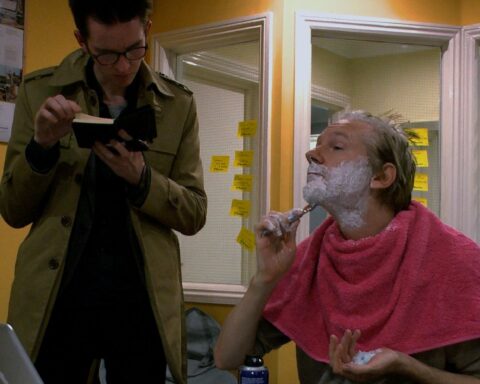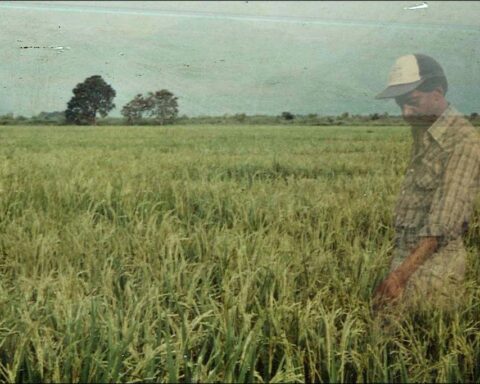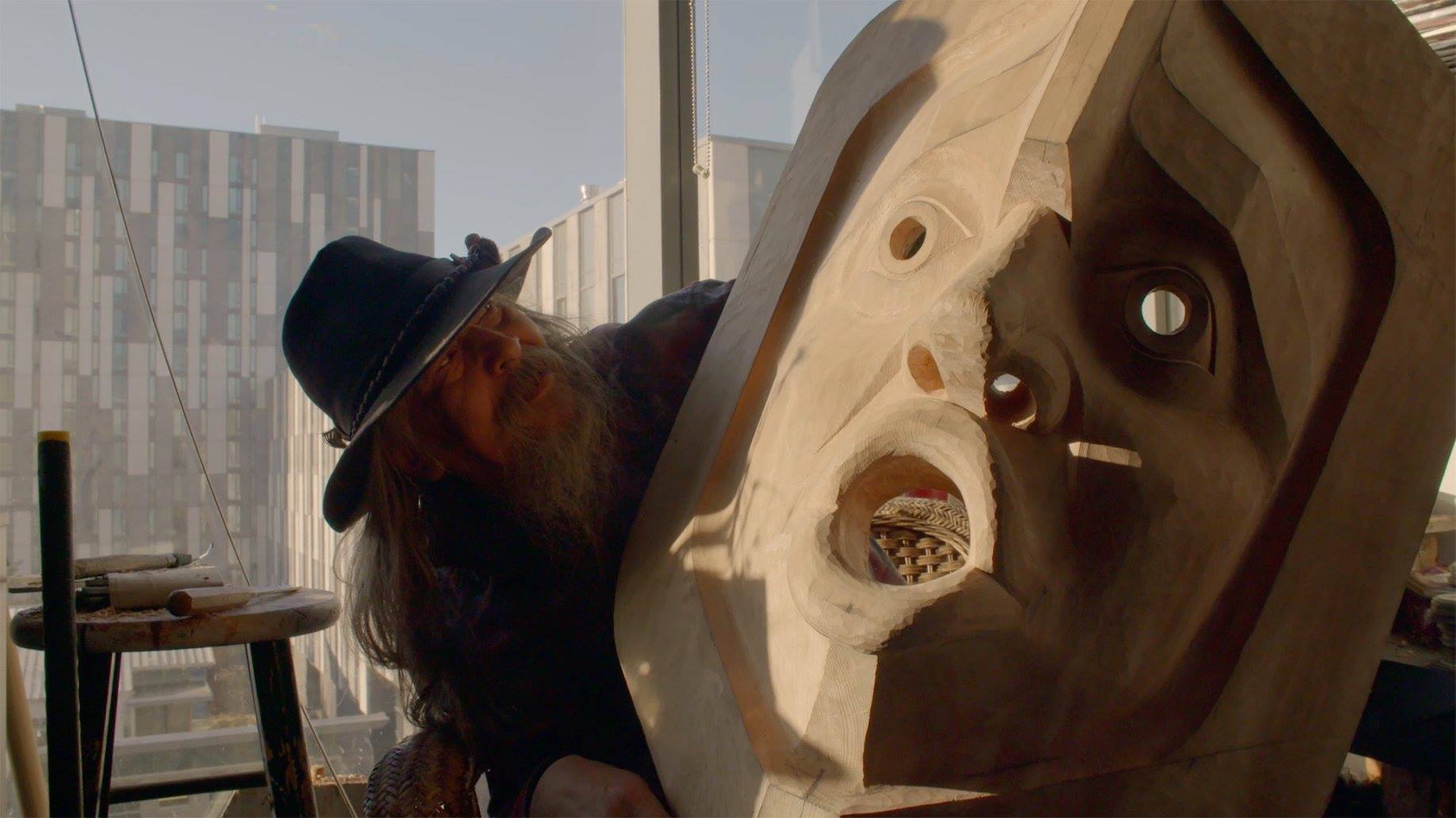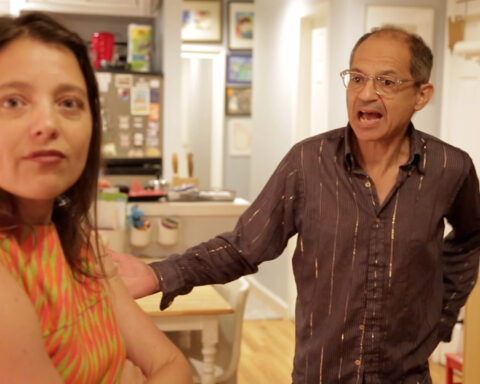Bending the Arc
(USA, 102 min.)
Dir. Kief Davidson, Pedro Kos
The right to health care—and, by implication, the right to life—is under the microscope again. Thanks to the unhealthy advice of Donald Trump, the Affordable Care Act is on the table again. It’s not on life support, though, since Dr. Death has opted to pull the plug. There are enormous precedents for saving lives by fixing a nation’s health care system and offering proper care to all, as the story of the compelling and timely documentary Bending the Arc shows with its depiction of small scale changes that inspired long term gains.
This powerful film profiles a group of heroes who took the call to see healthcare as a duty and service, rather than as a clinical enterprise. Bending the Arc is the story of Dr. Paul Farmer, Dr. Jim Yong Kim (now president of the World Bank), activist Ophelia Dahl, Todd McCormack, and investor Thomas White and their brave effort that began in the 1980s as they delivered life saving services to small communities in third world countries.
Bending the Arc gives a retrospective analysis of the team’s endeavour, which can and should inspire more action today. The good doctors, particularly Farmer, are hallmarks of youthful idealism as they go to Haiti and provide life-saving treatment to villagers in the small town of Cange. There the doctors and philanthropists treat patients with life-threatening diseases, including tuberculosis, with the generous financial support of White, who bankrolls the operation with his savings like a philanthropic living will. The results are astonishing as one sees the doctors revive patients whom much of the world wrote off as not worth saving.
The team establishes Partners in Health, a nonprofit health organization that thrives by bringing care to the neediest corners of the world. Their work takes them to Peru, where they encounter an aggressive strain of multi-drug resistant tuberculosis that has devastating consequences for their team. This loss, however, makes them even more proactive about changing minds and being fearless in their approach. The results surprise everyone, particularly leading doctors in the USA who challenge the sustainability of using Partners in Health’s life-saving care on a global scale.
Farmer, Kim, and Dahl all appear in interviews that recount the challenges and successes of treating communities in need. Joined by equally passionate doctors and activists, like Dr. Joie Mukherjee, who came to Partners in Health during the early stages, the band recounts the story of a start-up company with anecdotes of drugs and supplies pilfered from American hospitals and clinics. The story of Bending the Arc is ultimately one about sharing the altruistic philosophy inherent in healthcare since the doctors teach members of these impoverished communities to be caregivers to their neighbours. By growing a network of community health workers, Partners in Health develops a shrewd plan that shifts the burden of responsibility from the patient to the system. Even better, once the onus is on the institution to ensure survival, Partners in Health incorporates essential elements, like good nutrition, to the cocktail of drugs and treatment.
The film finds another compelling example in Rwanda when Farmer accepts the invitation of health minister Dr. Agnes Binagwaho to come visit Africa and lend a hand. In Rwanda, Farmer and Partners in Health see a nation struggling with the repercussions of the 1994 genocide under which the nation’s health care has collapsed. They work closely with Binagwaho to overhaul the system with their community-based initiative that proved successful.
If Rwanda, a third-world nation on the brink of collapse, can become a model for health care reform, then why can’t the wealthier nations of the world take notice? Bending the Arc confronts the pervasive systemic and institutional biases held in governing bodies in the western world as it builds the success story of Partners in Health. Thinly-veiled racism coats the discussions of providing care to impoverished communities with dismissive attitudes characterizing people in Africa and Latin America as too poor, lazy, or stupid to keep to the schedule of costly drug programs, while cost-cutting efforts, money lending, and concepts of indebtedness leave the Third World in an inescapable cycle. Binagwaho’s voice is essential in countering these stereotypes, as are the first-hand images and stories that Farmer et al provide in showing communities who not only want to help their neighbors, but have the smarts to do so. They just need the support and tools.
Directors Kief Davidson and Pedro Kos highlight the valiant necessity of altruists like Farmer, Kim, Dahl, and everyone involved in Partners in Health in providing care and changing minds, which bring about the long road to reform. Bending the Arc lets audiences witness the outcome of Partners in Health’s care. Archival images show the emaciated patients close to death when the doctors treat TB and AIDS. Present-day interviews with these survivors offer portraits of people saved and transformed by the doctors’ choice to see medical care as a right and duty, rather than as a mere bottom line. The compelling evidence, coupled with the testimonies of the interviews, thankfully leaves little room for debate. If only more people in power took the medicine.
Bending the Arc screens at the Hot Docs Ted Rogers Cinema on Wednesday, Oct. 4 and Thursday, Oct. 5 as part of the ongoing Doc Soup Series.
Co-director Pedro Kos will participate in post-screening Q&As on October 4 (in person) and October 5 (via Skype). Film subject Dr. Fernet Leandre, co-executive director of Partners In Health in Haiti, will be in attendance for Q&As at all screenings.












